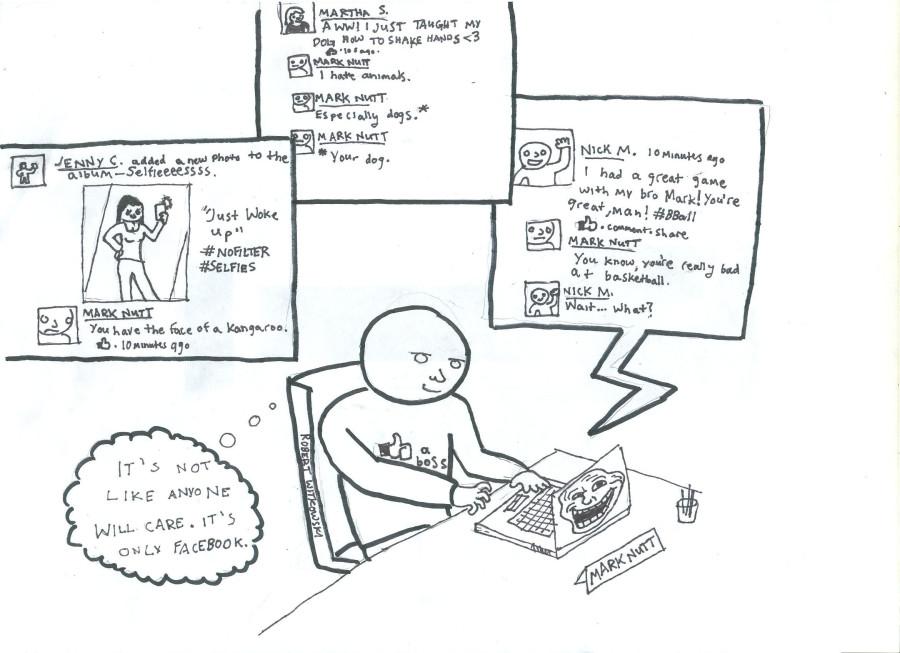Anonymity is a powerful force. Hiding behind the internet makes us feel invincible, as well as invisible, but as more and more social networking is created, people have a larger and larger mask to hide behind, straining real personal relationships.
Social network cites allow people to say what they want without being face to face with the person or group they are attacking. This then allows people to maintain less self-control online, and prevents people from being confrontational with their opinions.
“Think of it as a licensing effect: You feel good about yourself so you feel a sense of entitlement,” says Keith Wilcox, assistant professor of marketing at Columbia Business School, in an article from the Wall Street Journal. “And you want to protect that enhanced view, which might be why people are lashing out so strongly at others who don’t share their opinions.”
With the development of more social networks every year, face to face communication is lost, causing social problems between people and relationships. People are also able to attack others they would normally not insult in person.
For example, woman recently posted insulting comments on twitter against the Lake Zurich Cheerleading program on Twitter. She has no relation with the team and is a woman attacking high school students.
“It is funny how a grown woman would actually attack high school girls hiding behind her Twitter account,” Sarah Blechschmidt, sophomore cheerleader, said. “If someone doesn’t have the guts to say it to your face, they shouldn’t be able to post it online.”
People are less inhibited online because they cannot see the reaction of the person they are addressing. Because it is harder to see and focus on what we have in common, people tend to dehumanize each other, according to Sherry Turkle, psychologist and Massachusetts Institute of Technology professor of the social studies of science and technology, in the article Why Are We So Rude Online.
It is hard to think that people will insult and attack other’s opinions, personality, appearance, or anything about them without saying it face to face and truly knowing that person and his/her situation. Would the woman who attacked the cheerleading program, tell an LZHS cheerleader that she is bad and that her team is going to do poorly this year? That is unlikely, yet she could go on her computer by herself and post it on Twitter.
Another problem involved with social networking is the loss of actual human communication and socialization.
Studies show that only seven percent of communication is based on the written or verbal word. A whopping 93 percent is based on nonverbal body language, according to the article Is Social Media Sabotaging Real Communication?
Without being able to use body language as a way to communicate, the things being said can be taken the wrong way. For example, when a person is texting someone, they can never truly tell if “I’m fine” is actually the truth.
“There is so much that is taken from communication when we use the internet to communicate,” Blechschmidt said. “People are able to hide behind that mask of the internet and hurt others.”
Social networking will continue to attract all different types of people with different opinions, but the negative effects will continue to hurt people as well.

